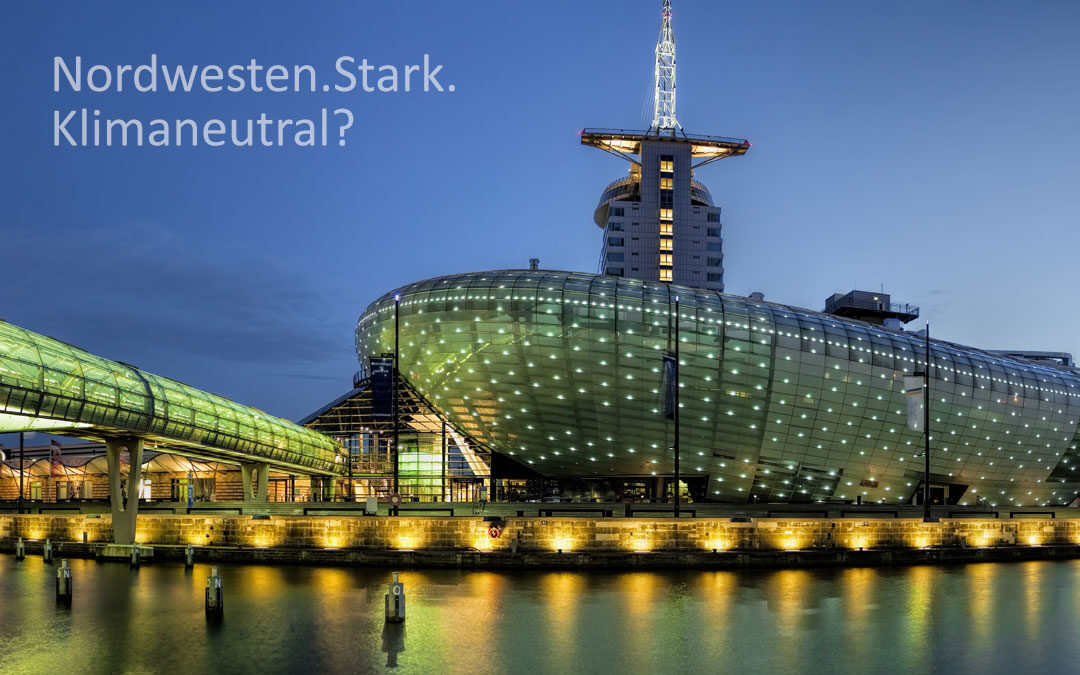Together with the Chambers of Industry and Commerce in Oldenburg, Bremen and Stade and at the invitation of the Northwest Metropolitan Region, various players from the scene came together on May 12, 2022 under the motto “Meeting point Metropolitan Region – Northwest.strong.climate-neutral?” to exchange ideas with Dr. Andreas Bovenschulte (Mayor of Bremen and President of the Bremen Senate) and Peter Hoffmeyer (1st Chairman of the Northwest Metropolitan Region).
Climate neutrality and sustainability are the focus of the Northwest Metropolitan Region, one of eleven European metropolitan regions in Germany. It stretches from the beaches of the North Sea coast to the Teutoburg Forest and from the Ammerland garden landscape to the equestrian town of Verden on the Aller, covering an area of 13,757 km² and within a perimeter of 1,139 km.
Northwest.strong.climate-neutral – How do we tackle the challenges? What makes our region strong? Where do we need to improve? And how? There could be no better venue than the Klimahaus in Bremerhaven, where you cross five continents along the 8th longitude. Here you can meet people from all over the world who talk about their everyday lives and how the prevailing climate affects them. An impressive start to the thematic discussion on regional opportunities for the development of a hydrogen economy in the Northwest metropolitan region.
However, the basic prerequisite for the production of hydrogen is water. This was the starting point for Mr. Karsten Specht, Managing Director of the Oldenburgisch-Ostfriesischer Wasserverband (OOWV). His presentation “Water as a scarce resource: challenges and solutions” focused on sustainable water supply. Mr. Specht gave the participants food for thought by pointing out that water is an overarching issue – after all, water is the first thing you ask yourself in the desert.
Water and hydrogen are two important topics in regional development that have been supported by aconium GmbH for years. While the HyTrEc project in 2012 examined strategies and framework conditions for the safe transportation of hydrogen in the North Sea region, the follow-up project HyTrEc 2 is currently dedicated to the development and improvement of the costs of FCEVs (Fuel Cell Electric Vehicles).

